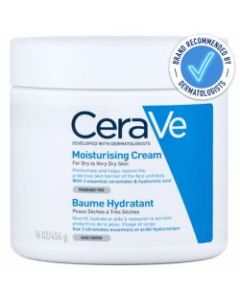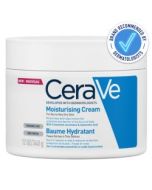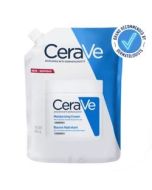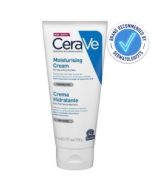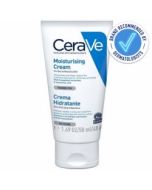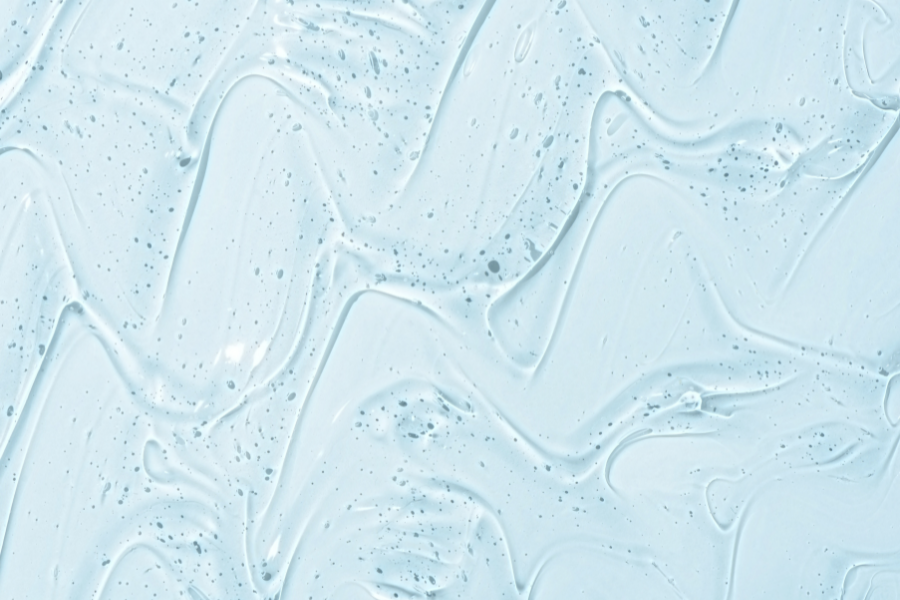
The Skincare Ingredients Guide: Ceramides
In the pursuit of radiant and youthful-looking skin, Ceramides have received significant attention in recent years within the skincare community. But what exactly are ceramides, and why are they considered the holy grail of skincare? In this blog post, we will delve into the world of ceramides, exploring their importance, benefits, and how they can transform your skincare routine.
What Are Ceramides?
Ceramides are natural lipids (fats) that are an important part of our skin. They compose about 50% of our Stratum Corneum, which is our skins protective barrier (the outermost layer of our skin in the epidermis), helping to protect our skin from external aggressors, and keep it moisturised and healthy.
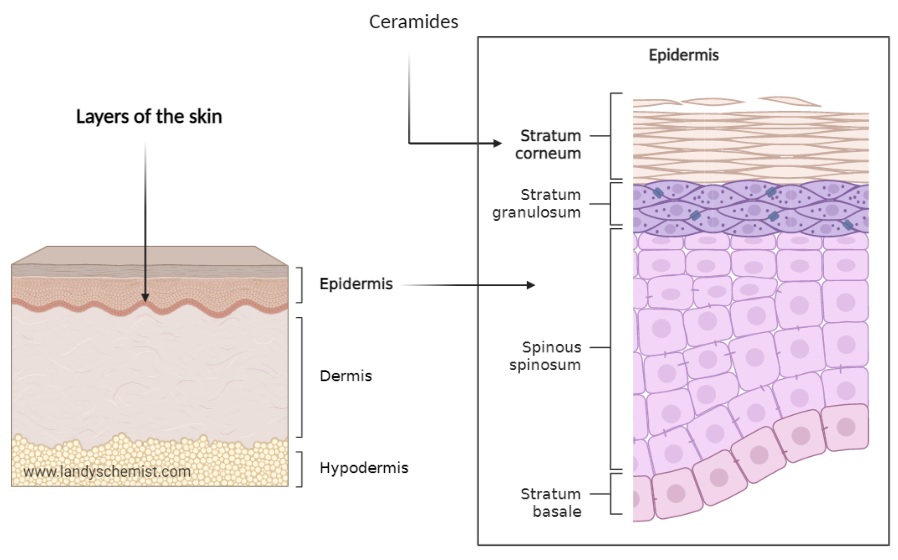
Decreased Level of Ceramides
As we age, our skin naturally produces less ceramides, ultimately leading to a decline in our skin barrier health. Other factors that impact ceramide levels include:
- Harsh skincare
- UV damage
- Poor diet
- Certain skin conditions such as psoriasis and eczema
- Hot water
- Hormonal imbalances during times like the menopause
Signs that your skin may be producing less ceramides:
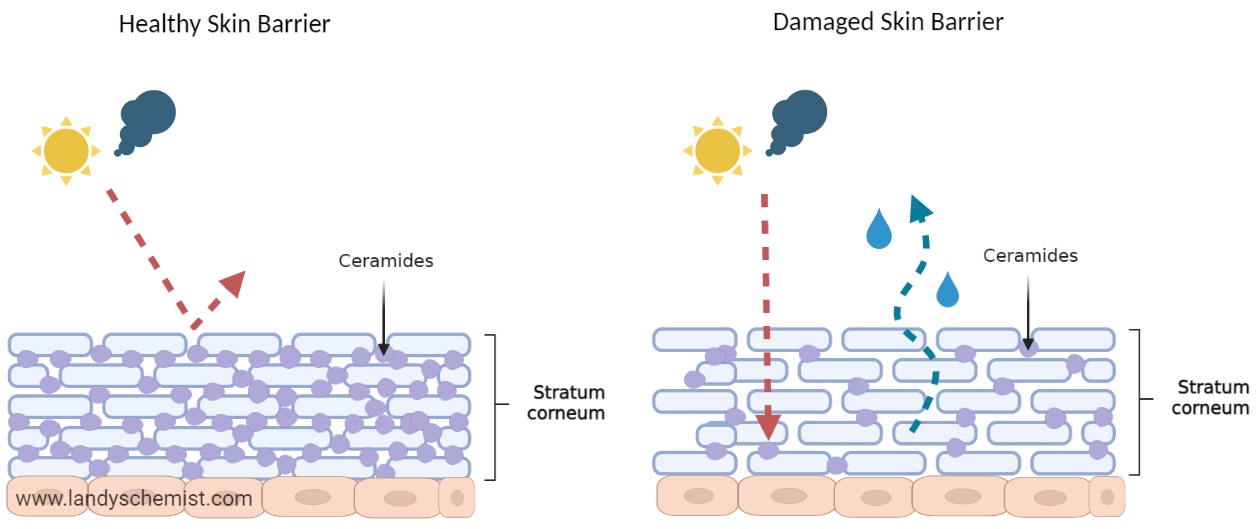
Ceramides are the bonds that fill in the gaps between our skin cells to keep our skin healthy. When ceramide levels begin to decline, this bond between our skin cells become weakened forming tiny “cracks” in our stratum corneum (skins barrier). This leads to our skin’s barrier becoming weakened and more suceptible to damage as external aggressors such as pollution particles and bacterias that are then able penetrate deep into our skin. This is where we can begin to notice signs on our skin such as:
- Dryness: One of the most common signs of ceramide deficiency is dry skin. If your skin feels rough, flaky, or tight, it may indicate a lack of ceramides.
- Increased sensitivity: Ceramides play a crucial role in maintaining the skin's barrier function. When ceramides are lacking, the skin becomes more susceptible to external irritants, leading to increased sensitivity and potential redness or inflammation.
- Itchiness: A deficiency in ceramides can cause itchiness or an uncomfortable, prickly sensation on the skin. This is often associated with dryness and compromised skin barrier.
- Rough texture: Ceramides contribute to the smoothness and softness of the skin. Without an adequate amount of ceramides, the skin's texture can become rough, uneven, and less supple.
- Increased appearance of fine lines and wrinkles: Ceramides are essential for maintaining skin elasticity and plumpness. When ceramides are depleted, the skin's moisture balance is disrupted, leading to a more pronounced appearance of fine lines and wrinkles.
- Flare-ups of existing skin conditions: If you have pre-existing skin conditions such as eczema or psoriasis, a deficiency in ceramides can trigger flare-ups and exacerbate symptoms, leading to increased redness, itching, and inflammation.
- Slow healing: Ceramides are involved in the skin's healing process. Insufficient levels of ceramides can hinder the skin's ability to repair itself, resulting in slower healing of wounds, cuts, or other skin injuries.
- Increased transepidermal water loss (TEWL): Ceramides help to seal in moisture and prevent water loss from the skin. When ceramides are lacking, the skin's barrier becomes compromised, leading to increased TEWL, which can further exacerbate dryness and dehydration.
Ceramides as a skincare ingredient
Ceramides in skincare have been praised as an effective and beneficial ingredient. As a fundamental component of the skin's barrier, ceramides contribute to its hydration, protection, and overall integrity.
Sourcing ceramides:
When it comes to skincare, ceramdies must be obtained from external sources. The most common sources come from synthetic (pseudoceramides) and plant-based (phytoceramides) sources, although some products may also be sourced from animals.
- Synthetic ceramides: Pseudoceramides are synthesised in the laboratory using various ingredients and chemical processes to mimic the structure and function of natural ceramides. These synthetic ceramide-like molecules are designed to provide similar benefits to the skin and are commonly used in skincare products as an alternative to naturally derived ceramides.
- Plant-based ceramides: Phytoceramides are typically made through the extraction and processing of plant-based sources such as rice, wheat, or konjac, and can also be found in plant oils such as jojoba oil. The plants undergo a specific extraction method to isolate ceramides, which are then further processed and formulated into skincare products.
- Animal-sourced ceramides: These ceramides are derived from the skin of animals such as cows, where the skin undergoes a process of extraction and purification to isolate the ceramides, which are then incorporated into skincare products.
How ceramides work in skincare:
By incorporating ceramides into skincare, we are able to strengthen the structural layer of the stratum corneum (skin barrier). Research has found that the use of ceramide-containing formulations can improve overall skin health against sun exposure. Another study investigating a topical ceramide-reinforcing product found a significant increase in skin hydration levels after one use. Therefore, ceramides as a skincare ingredient can help to combat the loss of ceramides in the skin and decrease signs of a compromised skin barrier.
Benefits of ceramides in skincare
- Moisture retention: Ceramides help to lock in moisture within the skin, preventing transepidermal water loss (TEWL) and maintaining optimal hydration levels. This contributes to healthy skin and is linked to other skin conditions such as psoriasis and eczema.
- Repaired skin barrier: Ceramides can strengthen the skin barrier, reducing sensitivity, preventing moisture loss, and defending against environmental pollutants.
- Improved skin texture: By reinforcing the skin barrier, ceramides can help improve the texture of the skin, making it smoother, softer, and more even-toned. They contribute to a healthier skin surface, reducing roughness and flakiness.
- Protection against environmental damage: Ceramides play a role in shielding the skin from environmental stressors like UV radiation, pollution, and harsh weather conditions. They help to minimise the damage caused by these factors.
- Soothing and calming properties: By reinforcing the skin’s barrier, it becomes more resilient to aggressors that cause inflammation, leading to less irritated or sensitive skin. Ceramides can alleviate redness, itching, and discomfort associated with conditions like eczema and dermatitis.
- Anti-aging effects: As ceramides help maintain the skin's moisture balance, elasticity, and barrier function, they can reduce the appearance of fine lines, wrinkles, and other signs of aging. Research found that improving the skins epidermal function with topical products can be linked to delayed age-associated alterations in the skin.
- Compatibility with various skin types: Ceramides are suitable for a wide range of skin types, including dry, sensitive, mature skin, and even acne-prone skin. They provide essential lipid support to restore and maintain the skin's natural balance to reduce inflammation and irritation.
How to use:
Ceramides in skincare are safe to use twice daily in the morning and evening. It is best to apply ceramides to the skin after cleansing whilst the skin is slightly damp. This allows your skin to absorb the skincare products better.
How long can ceramides take to repair the skins barrier?
Topical ceramides can take from 2 weeks to a few months to repair the skin’s barrier. This depends on the level of damage there is to begin. When you skin is healed you will notice less inflammation, irritation, and better moisture retention keeping your skin hydrated.
Skincare ingredients that work well with ceramides:
There are several options that complement and enhance the benefits of ceramides in skincare. Here are a few top skincare ingredients that pair well with ceramides:
- Hyaluronic Acid: Hyaluronic acid is a humectant that attracts and retains moisture in the skin, promoting hydration and plumpness. When used alongside ceramides, it can support improvements in the skin's moisture barrier.
- Niacinamide: Niacinamide, also known as vitamin B3, offers a range of benefits for the skin. It helps enhance the skin's barrier function, minimises the appearance of pores, reduces redness, and regulates oil production. When combined with ceramides, it supports overall skin health and improves its resilience.
- Retinol: Retinol, a derivative of vitamin A, is a potent ingredient for addressing various skin concerns. It promotes cellular turnover, improves skin texture, reduces the appearance of fine lines and wrinkles, and enhances collagen production. When used alongside ceramides, retinol helps replenish and strengthen the skin's barrier, minimisng potential irritation.
- AHA’s and BHA’s: Ingredients like alpha hydroxy acids (AHAs) and beta hydroxy acids (BHAs), including glycolic acid, salicylic acid, and lactic acid, can support the efficacy of ceramides. These ingredients are referred to as chemical exfolaints, which remove dead skin cells from the surface of that skin, allowing for ceramide moisturisers and serums to easily penetrate into the stratum corneum (top layer of the skin).
Recommendations:
Ceramides in Vichy Nutrilogie 2 play a vital role in replenishing and strengthening the skin's natural moisture barrier, helping to prevent moisture loss and restore hydration to dry and dehydrated skin. These ceramides work synergistically with other nourishing ingredients such as vitamin E in the formula to improve the overall health of the skin.
CeraVe Moisturizing Cream contains 3 ceramides that help to restore and strengthen the skin's protective barrier. These ceramides effectively lock in moisture, promote hydration, and improve the overall health and resilience of the skin. A great moisturiser for the face and body.
Summary:
- Ceramides are naturally occurring lipids in the skin that play a crucial role in maintaining a healthy skin barrier.
- Incorporating ceramides in skincare helps replenish and strengthen the skin's barrier, improving moisture retention and preventing dryness.
- Ceramides are beneficial for various skin concerns, including dry skin, eczema, psoriasis, aging skin, and sensitive skin, providing soothing, hydrating, and protective effects.
By Rhysa Phommachanh, BA (Hons) Specialist in Skincare and Media Make Up


